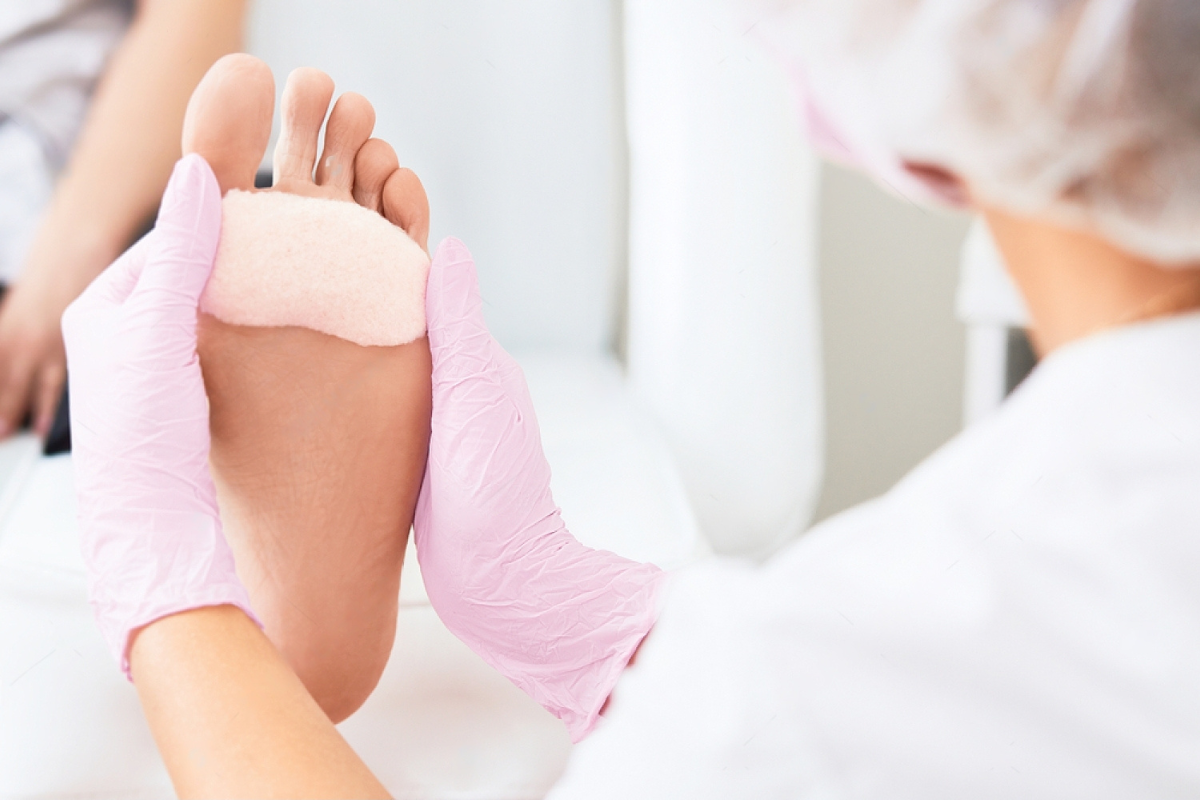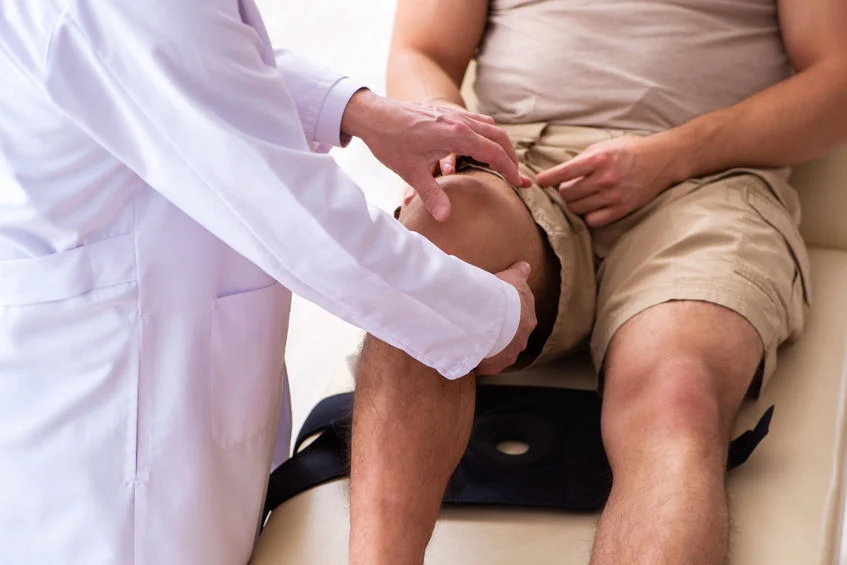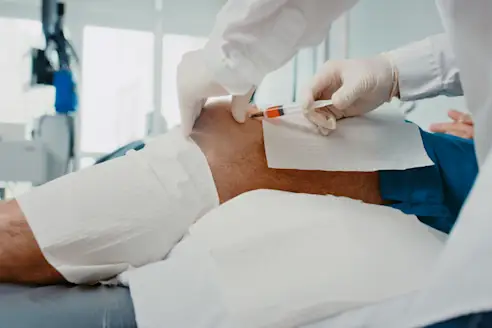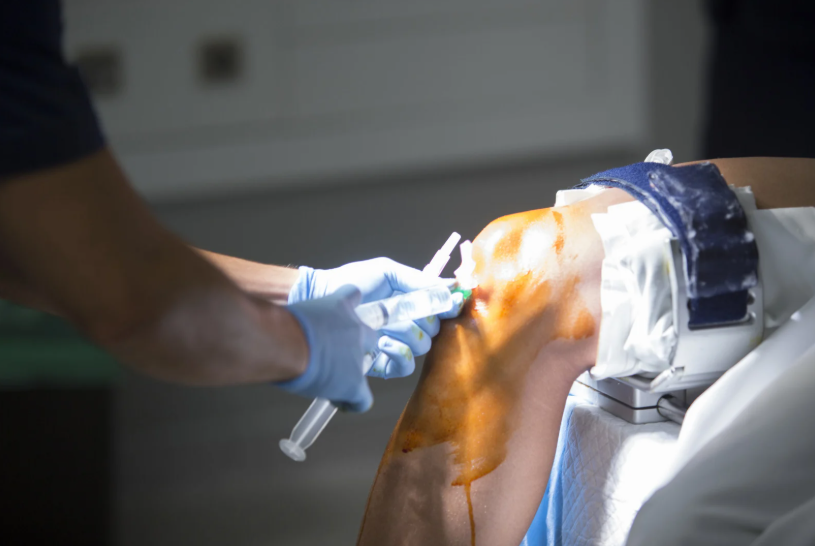Toe ulcers are open sores that often appear on the toes and feet, particularly in individuals suffering from conditions like diabetes, poor circulation, or nerve damage. While these ulcers might seem like a minor issue at first, they can quickly progress, leading to severe infections or even tissue death if not managed promptly. The good news is that orthopedic treatment plays a crucial role in healing toe ulcers, managing pain, and preserving mobility. In this blog, we’ll explore the key elements of orthopedic care for toe ulcers, focusing on infection control, promoting healing, and preventing complications.
What Are Toe Ulcers?
Toe ulcers are open sores that typically develop due to factors like poor circulation, nerve damage, or infection. They’re particularly common in individuals with diabetes, where high blood sugar can lead to reduced blood flow to the feet and damage to nerves. These ulcers can form when the skin on the toe breaks down due to pressure, trauma, or infection.
The root causes of toe ulcers often involve:
- Poor Circulation: Reduced blood flow to the feet can prevent wounds from healing, causing them to become ulcers.
- Nerve Damage: Diabetic neuropathy can reduce sensation in the feet, making it harder to notice injuries or sores that lead to ulcers.
- Infection: Bacteria can enter through broken skin, leading to infection and worsening the ulcer.
Symptoms of Toe Ulcers: How to Spot Them Early
Recognizing the symptoms of toe ulcers early is vital to preventing further complications. Early-stage toe ulcers may appear as a small, open sore on the toe, often surrounded by redness or swelling. The symptoms can include:
- Pain or tenderness around the ulcer.
- Redness or warmth in the affected area, indicating potential infection.
- Swelling or pus around the ulcer, suggesting an advanced infection.
If you experience any of these symptoms, it’s important to seek medical attention quickly. Prompt treatment can help prevent more serious issues like infection spreading or tissue death.
Orthopedic Care for Toe Ulcers: The Role of Specialists
Orthopedic specialists play a key role in managing toe ulcers, especially for individuals with underlying conditions such as diabetes or poor circulation. An orthopedic approach focuses on treating the ulcer from multiple angles: controlling infection, promoting healing, managing pain, and preserving mobility.
Orthopedic care typically involves:
- Infection Control: Using antibiotics and proper wound care to prevent infections from worsening.
- Pressure Relief: Reducing pressure on the ulcer to prevent it from worsening and to promote healing.
- Mobility Preservation: Ensuring the patient can continue moving and walking while minimizing strain on the affected area.
Orthopedic specialists not only focus on treating the ulcer itself but also address the underlying issues that led to its formation, such as improving circulation and managing diabetes.
The Comprehensive Approach to Treating Toe Ulcers
When treating toe ulcers, a comprehensive approach is crucial to ensure healing and prevent further complications. Here are the key steps in treating toe ulcers:
Infection Control
Preventing infection is a top priority when it comes to treating toe ulcers. This includes cleaning the wound thoroughly, applying antibiotics, and dressing the ulcer properly to protect it from bacteria. Regular monitoring ensures that infections are managed before they spread.
Wound Care and Healing
Proper wound care is essential for the healing process. Offloading pressure from the affected area is crucial to avoid aggravating the ulcer. Using special footwear, orthotics, or bandages can help relieve pressure and allow the ulcer to heal faster. In some cases, surgical intervention may be required to remove dead tissue (debridement) to aid healing.
Pain Management
Toe ulcers can be painful, and managing this pain is a critical part of treatment. Pain relief options may include over-the-counter pain relievers, prescription medications, or even localized treatments like numbing creams.
Mobility Preservation
Maintaining mobility is a priority, as it allows individuals to continue their daily activities without further aggravating the ulcer. This may involve the use of specialized footwear, walking aids, or orthotic devices to reduce pressure and protect the affected toe.
How Orthopedic Treatment Can Prevent Further Complications
When left untreated, toe ulcers can lead to severe complications, including tissue death (necrosis) or the need for amputation. Orthopedic treatment helps prevent these outcomes by:
- Managing Infection: By addressing infections early and effectively, orthopedic care prevents the ulcer from becoming life-threatening.
- Improving Circulation: Orthopedic specialists may recommend treatments to improve circulation, such as physical therapy, medications, or lifestyle changes to reduce the risk of ulcers returning.
- Preventing Amputation: With timely and proper care, orthopedic specialists aim to save the affected toe or foot, avoiding the need for amputation.
Preventing complications is at the heart of orthopedic treatment for toe ulcers, and early intervention is key.
The Importance of Regular Monitoring and Follow-up
Toe ulcers require regular monitoring to ensure they heal properly and do not return. Orthopedic specialists recommend follow-up appointments to check for signs of infection, assess the healing process, and make adjustments to treatment plans as needed.
Routine check-ups are especially important for people with diabetes, as they are more prone to foot ulcers and related complications. Regular monitoring ensures that issues are detected early and addressed before they become more serious.
Takeaway
Toe ulcers may start as small issues but can escalate quickly if not treated properly. Seeking orthopedic care early is essential to manage infection, promote healing, and preserve mobility. If you suspect you have a toe ulcer, it’s important to consult with an orthopedic specialist to avoid further complications and ensure your foot health is preserved.
Orthopedic treatment for toe ulcers offers a comprehensive solution, focusing on healing, pain management, and preventing severe complications. Take action today to protect your feet and ensure better health for the future.











